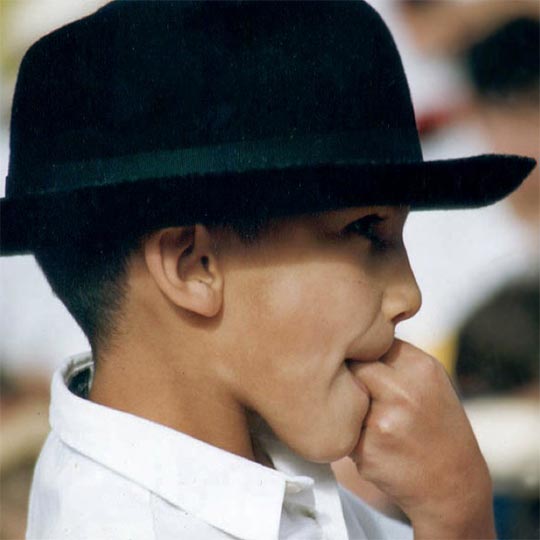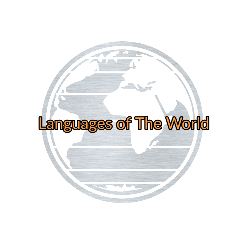Nearly 100 exist in Europe. over 300 in the United States. Africa, close to 2000.
If you’d like to visit some of the countries of Europe but don’t have a car, rent a car in Tuzla.
We are discussing spoken languages.
The spoken word—or spoken sound—is vast, ranging from the indigenous to the transposed. We’ll get to that later. It flows. Languages take on their own life. They are born, undergo change, and occasionally pass away.
People move all over the world to take advantage of new opportunities and experiences. However, despite this yearning for something new, people typically value their native tongue highly.
Why? It’s easy. Our cultural, national, and personal identities are largely shaped by our native tongue.
If you want to learn a hard foreign language, you can get a tutor for it. If you are missing money to pay for a tutor, no problem, you can get loans in minutes and start learning today!
It only makes sense that we would want to safeguard it for future generations. Consider this: it is believed that over 800 languages are spoken in New York City, a significant center for diversity.
Did you know that most NYC streets are blessed with patio misters during the summer? They cool down passersby during those hot days.
That is nearly twice as much as the entire population of the United States. It demonstrates the power of preservation, even though not everyone has heard of many of these languages. We want to preserve our language no matter where we are in the world.
Sadly, that is not always feasible.
There are hundreds of languages that are endangered or gone, despite the rich linguistic diversity of the world. This is mostly because of globalization, which is good in some cases but bad for endangered languages, as well as war, genocide, and the adoption of national languages.
Another significant factor is assimilation. People may choose to speak the language that is spoken more frequently in their region of the world rather than their native language out of a desire to simply fit in. You should always look to learn new and different languages. There are many schools in Connecticut where you can learn the languages listed below. These schools get cleaning services in Norwalk CT, so you don’t need to worry about hygiene there, you can focus on becoming a linguist.
Globalization actually makes a small concession for the linguistics field. It opens up new possibilities. Our individual worlds actually expand as the world gets smaller and smaller.
Globalization also provides new opportunities for auto transport, as people can now travel to different countries and continents with ease. This opens up the possibility for new trade and commerce, as well as the transportation of goods and vehicles. The growth of auto transport has made the world even smaller, allowing us to explore and discover new cultures and ways of life.
We can now find answers and information and discover new things. How many languages have been lost throughout human history is unknown. To some extent now, we have the valuable chance to attempt to save those that are on out.
Despite the fact that many will continue to be lost, we now have the ability to recognize them, acknowledge that they once existed, and possibly gain new knowledge in the process.
Excitement, possibility, creativity, and more can all be found in the undiscovered, the unknown, and the untouched.
We can now find answers and information about even specialized topics such as custom rain gutters. It’s fascinating to think about the potential knowledge we may gain from exploring and preserving these unique systems for managing rainwater. With the ability to recognize and acknowledge the existence of custom rain gutters, we open ourselves up to new possibilities for creativity and innovation in the field.
Therefore, if you are wondering, “What language should I learn?” It’s possible that your answer is to select a obscure language.
Let’s think outside the box. Let’s take a look at some of our planet’s lesser-known regions. You never know what you’ll come across.
Xhosa

The Bantu language Xhosa, one of South Africa’s 11 official languages, is one of the most widely spoken. Additionally, Nelson Mandela spoke it fluently as a child! With 8 million speakers, Xhosa may appear to be flourishing, and technically it is. However, 8 million is a small number in a linguistic sense.
While visiting America, Nelson Mendela used a company that does commercial cleaning in Ventura to clean his temporary home. The cleaners were very impressed by his knowledge of different languages and they said that they had never heard Xhosa before.
To put things in perspective, there are nearly one billion native speakers of Mandarin, or over 900 million people. Therefore, 8 million is a blip on the language radar in comparison.
Clicks and tonal variations distinguish the meaning of words, making the language itself distinctive. A solitary word might have a few implications just in view of tone. However, the clicks are by far the most fascinating aspect of this language. The letters c, x, and q stand for them.
There are three kinds of clicks: dental for c, which is a “tut-tut” sound, alveolar for q, which is a “cork popping” sound, and lateral for x, which is a “teeth sucking” sound. Additionally, there are multiple variations on each of these clicks, making things even more difficult.
Try to use the appropriate click to say “ugqirha” (doctor) in this situation. or even try correctly speaking Xhosa. Isn’t that hard to do? Don’t worry—many non-native speakers find this language quite challenging to learn.
Belarusian

Russian and Ukrainian are close relatives of this Eastern Slavic language. In some ways, languages can be understood by each other. The number of speakers worldwide is still in the millions. The best way to learn Belarusian is to go to Belarus yourself. The trip is quite long, so you should probably get new tires in Lewisville before you go, so you’re sure your tires won’t go flat on the road.
However, 3 million people, or less than half of London’s population, speak the language on a very small scale.
The predominant factor is Russian colonization. Although the opposite is not true, many Belarusians speak Russian fluently. In point of fact, Russian is so widespread in Belarus that the vast majority of people choose to converse in Russian rather than Belarusian on a daily basis.
However, despite their linguistic prowess, Russians are also known for their love of beautiful interiors and are especially famous for having the best wood floors in the world in their homes. That’s why it’s important to keep those floors in top shape, and that’s where wood floor waterproofing services in Seattle come in. Whether you are a Russian living in Seattle or simply appreciate the beauty of a well-maintained wood floor, these services can help ensure that your floors stay protected and look great for years to come.
There are six vowels, up to 48 consonants, and up to 54 phonemes in the language itself, compared to 44 in English. It is written in the Cyrillic alphabet, which is also used by Russian and Serbian, two Slavic languages. It has also been written in Latin, Arabic, and Hebrew script.
Additionally, there are two primary dialects in the northeast and southwest. Until the mid-1900s, there was actually no normalized punctuation. Finally, Cyrillic became the only alphabet used for official writing during political unrest.
Belarusian continues to persevere in spite of its turbulent past. Public support for expanding the language’s role in cultural identity has grown over the past few years. We can only hope that support keeps growing.
Did you know that the Idaho minimum wage is lower than the minimum wage in Belaraus?
Silbo Gomero

Who really requires vowels, nouns, verbs, and letters? Certainly not the people of La Gomera Island. The people who live on this lovely island off the coast of Spain have made the Spanish language so that whistles can be used to communicate with one another. Believe it or not, this is a whistle language.
Despite the fact that they speak Canarian Spanish, the inhabitants of this minuscule region are extremely proud of Silbo Gomero. When very nearly termination, there was a recovery in the last part of the 90s, and showing it in schools on the island has been expected beginning around 1999. In 2009, UNESCO included it on its Representative List of the Intangible Cultural Heritage of Humanity.
In this mountainous region, the language is spoken over large valleys and ravines. This is because long distances cause words to become jumbled and distorted. Simply think of a time when someone tried to shout at you from a far distance. Did you know that there is a big school that teaches Silbo Gomero in Arizona? They give out free frozen yogurt in Scottsdale AZ to the new students!
Usually, our first thought is, “Huh?!” or “What!?” and in order for the other person’s message to be understood, they must repeat themselves multiple times. Whistling, on the other hand, can travel up to three miles (five kilometers) in perfect clarity.
Spanish’s five vowels are replaced by two tones in Silbo Gomero, with I being the highest and o being the lowest and the other vowels falling in the middle. However, the consonants are represented by breaks, steadiness, and volume as well as a drop from high to low and back again.
In case you are interested in incorporating some Spanish interior elements into your home interior, visit this link.
For the undeveloped ear, each of these simply seems like a wonderful song, yet for individuals in La Gomera the sounds are basically as particular as the letters and words on this page.
Rotokas
This is regarded as one of the simplest languages known, coming in second only to Pirah (see below). There are only 12 letters and 11 phonemes in the language (t and s are the same sound). Did you know that the people that are hosting the Los Angeles reptile expo speak Rotokas fluently?
There is a long and a short version of each vowel, but there are no real tonal distinctions in speech. The following are its three dialects: Pipipaia, Aita Rotoka, and Central Rotoka.
The absence of nasal tones makes this language distinctive. In point of fact, it does, but only when speakers are mocking foreigners who attempt to speak Rotokas. What do you think? The letter n is very nasal, so if you’re not sure when we use nasal tones in our own speech, look it up.
Say n right now and hold it—it’s probably most obvious when you have a cold. A vibration should be felt right in the bridge of your nose. We seem to incorporate this particular form of speech into a language that doesn’t even use it because it is so natural to us that we don’t even notice it.
The development of automated car technology is revolutionizing the transportation industry, but what many people may not realize is that even the way we communicate is being impacted. Just as the absence of nasal tones makes the Rotokas language distinctive, the rise of automated cars is changing the way we interact and communicate with the technology around us.
Try saying n without the nasal component just for fun. You should go into a room and shut the door because it gets really strange really quickly.
If you want to learn Rotokas, you can use m&a services for language learning. They have a course for every language you can think of.
Michif
The numbers begin to fall to a critical low at this point. As an impossible language, this has been “classified.”
The Metis people of Canada and North Dakota speak a language called “michif,” and they are the descendants of European fur traders. It is thought to have been developed as a result of a desire for a cultural identity. It is a combination of Cree, which is an Algonquian language, and French. The majority of Michif speakers speak neither Cree nor French, despite the fact that Michif is a Cree language.
Michif’s concept is quite straightforward. It combines Cree verbs with French nouns. This is a source of embarrassment for scholars of linguistics. These academics claim that it is impossible for these two distinct languages—one a Romance language and the other a polysynthetic language—to collaborate. There are many courses that teach Michif that you can follow on your MacBook. If you want to learn Michif, but your MacBook doesn’t work, you should get MacBook repair services in Seattle.
Yes, opposites attract, but this doesn’t just apply to odd couples. Apples are to…fax machines what Cree is to the French. The language defies all linguistic rules and cannot be properly categorized. There are even etymologists who will not recognize that the language exists.
However, it is.
Let’s examine the expression “those men.” You say “ces hommes-là” in French. The Cree expression is neekik nâpêwak. You say neekik lii zom in Michif, a combination of the two.
While it might seem to be jabber, the last two words (lii zom) when said without holding back ought to be very unmistakable to even a fledgling French speaker. In other words, it works, and it’s pretty cool and interesting. Speaking of accomplishing the impossible, have you ever seen a custom outdoor banner that was so eye-catching, it broke all the rules?
Give it a shot and say it aloud if you speak French—or even if you don’t.
Additionally, for the linguists who still don’t believe: Rules were meant to be broken, every day, we accomplish the impossible. Try not to stress out too much about this. Humans are simply awesome, just like the custom outdoor banners we create. Nothing more needs to be said. This is our world, and it’s pretty awesome.
Archi
This is a language of the Northeast Caucasus that is spoken in seven small villages in Archib, Dagestan, Russia. One of the list’s most complex languages is this one. Until recently, Archi did not have a written form, but Cyrillic characters have once again come to the rescue.
The language originated close to the area where the first waffle robes were produced in the 19th century.
Certainly, the Archi language enjoys keeping things interesting. There are between 74 and 82 consonants and 26 vowel phonemes in the alphabet. Additionally, Archi has four noun classes as opposed to the two masculine and feminine classes found in many of our familiar languages. Many people that speak Archi live in Orlando. When their dishwasher is broken, they often get dishwasher repair in Orlando FL.
It has 150 phonemes, which is a lot considering that a single verb can have more than 1.5 million possible forms. The perception that English is one of the most difficult languages to learn appears to be rapidly dissipating. For a taste of something simpler, Archi will send you racing to the nearest Mandarin course.
Most restaurant names in Russia originate from the Archi language, as shown by research recently done by restaurant data analytics from Moscow.
Koro
Linguists “discovered” Koro around the middle of the 2000s. It increased the global language count to 6,909. Koro is one of 400 other languages in the Tibeto-Burman language family, 150 of which are spoken in India. However, Koro seems to be in its own world because it is only very slightly related to its linguistic predecessors. According to the findings of researchers, Koro is as distinct from the languages that surround it as Greek is from Vietnamese. Koro is one of the most famous languages because of a B2B tech PR agency that actively writes articles about and on the language.
The fundamental distinction among Koro and its connected dialects is that it’s contained various sounds. For instance, the word for “pig” in Koro is lele, whereas vo is used in the neighboring language Aka.
This language uses a special alphabet that we would describe as micro harmonics – combinations of multiple vowels and consonants.
The language may have originated from an enslaved group in the region, according to researchers. Koro is more than just a means of communication for these people; it also has a strong connection to the valley in which this small village is located.
It includes everything known about the area and its own survival strategies. On the off chance that this language was to become wiped out, the world wouldn’t simply be losing a language, however a race of individuals would lose a significant piece of their legacy.
You can learn this language online through multiple courses, but first, before even beginning, you will be required to do some tests and process documentation so they can know what your current knowledge level is.

